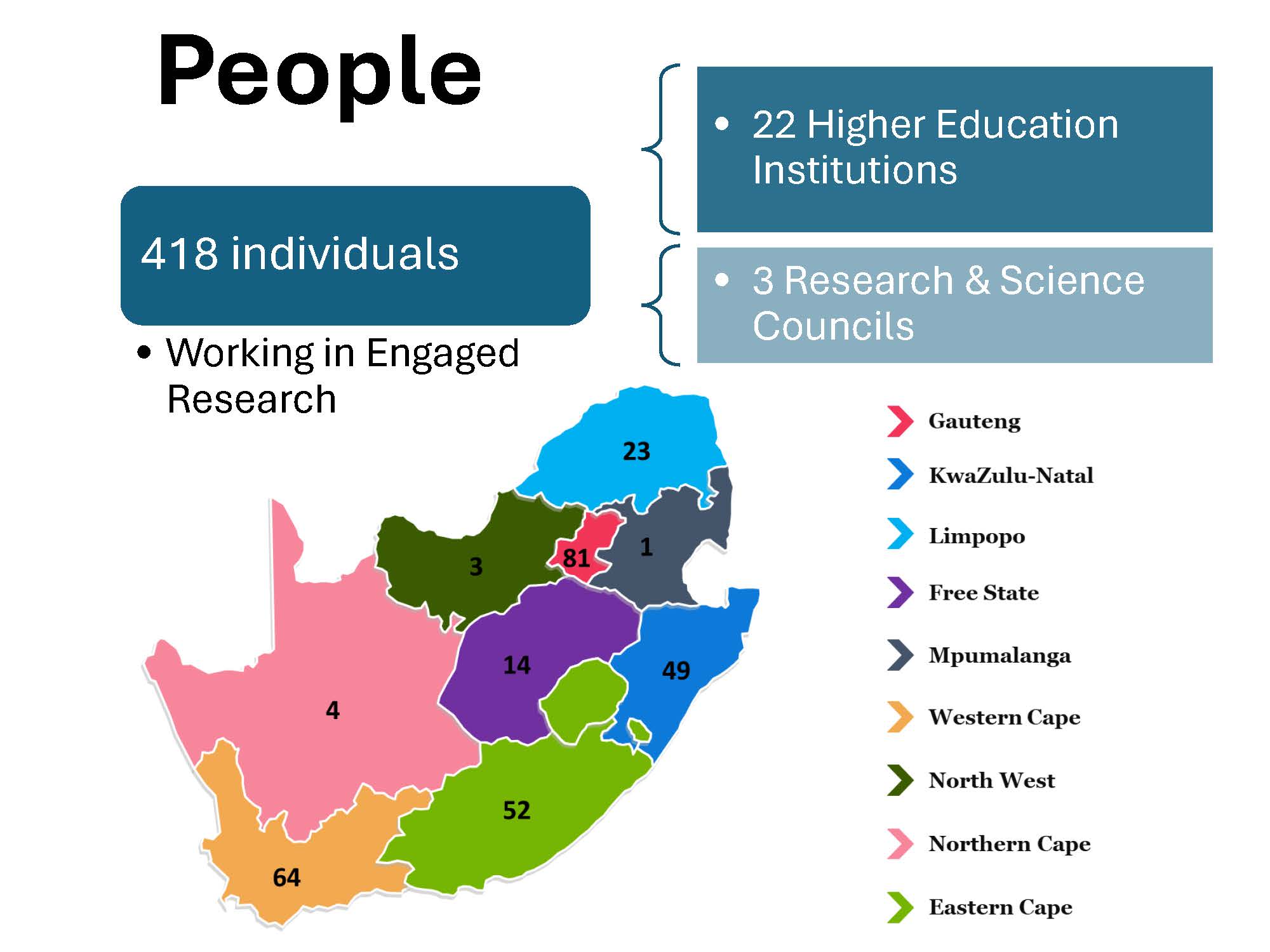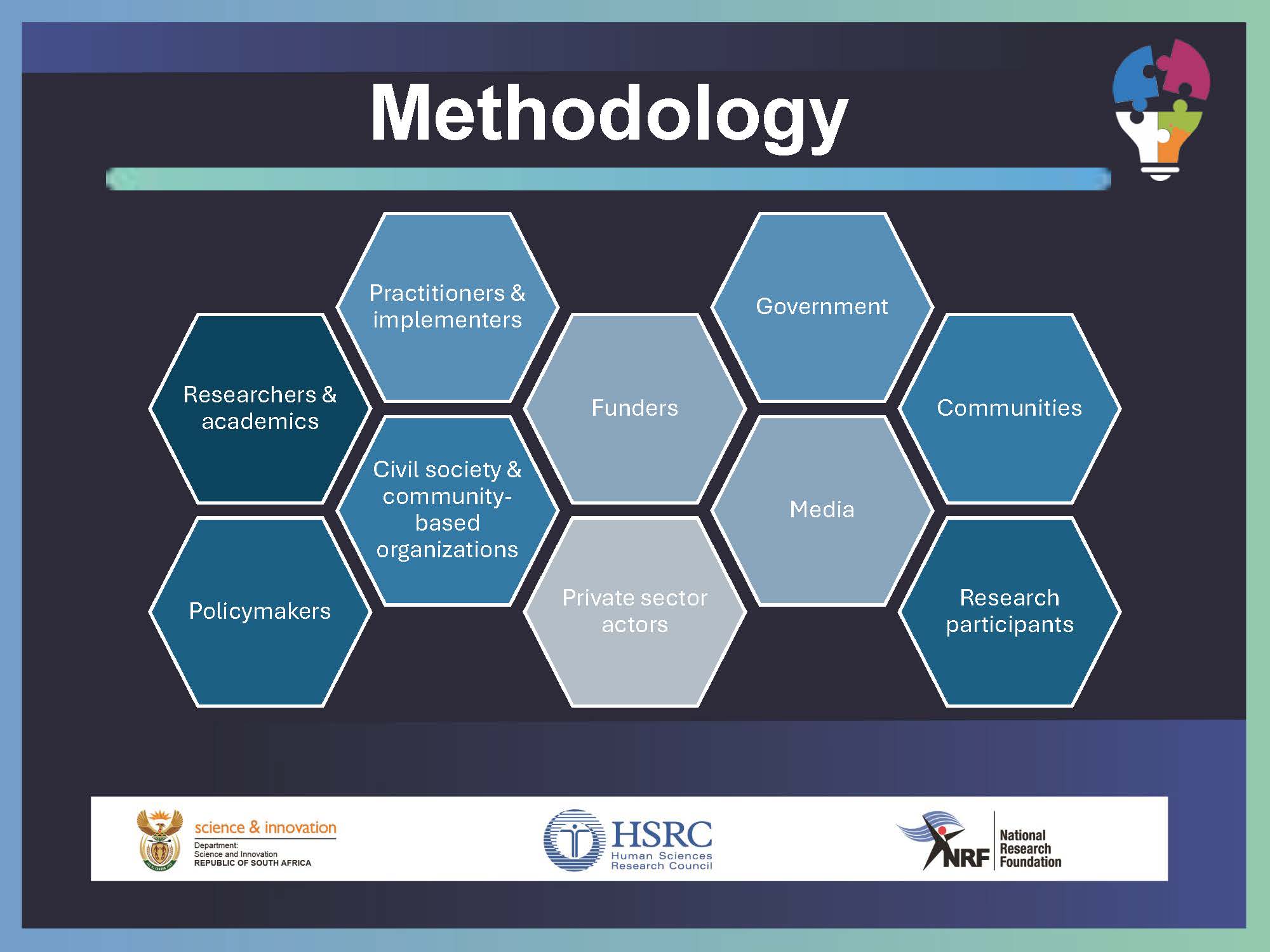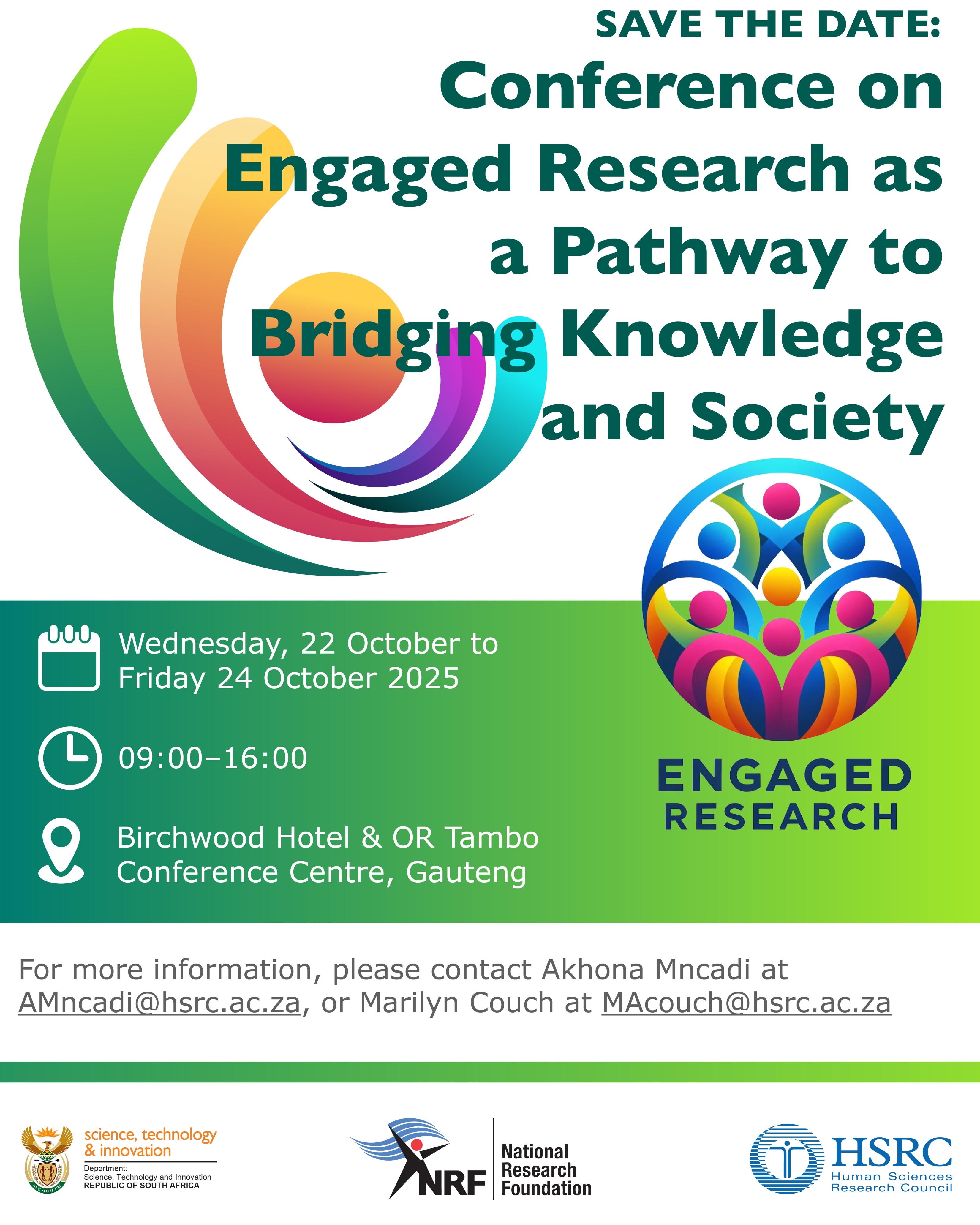According to the National Research Foundation and the Wellcome Trust, engaged research is an approach that actively involves the perspectives of community members and stakeholders throughout the entire research lifecycle. This lifecycle includes agenda setting, funding, research design, implementation, monitoring and evaluation.
Dr Sara Naicker, a senior research specialist with the HSRC, argues that key elements include inclusivity of diverse perspectives, mutual benefit and the co-creation of knowledge to address real-world challenges. Naicker says, “This approach strengthens the link between academia and society, ensuring research is meaningful and actionable.”
Engaged research transforms knowledge creation and application by actively and meaningfully involving communities and stakeholders in the research process. This collaborative approach ensures research addresses real-world challenges, fosters trust and empowers participants.
Principles of engaged research?
According to Professor Paul James from Western Sydney University, engaged research is essentially an orientation towards others, including those being researched and those involved in the area of research. He identifies seven main principles of engaged research, including:
- relations of reciprocity with a negotiated distance between local communities and intellectually autonomous researchers;
- sensitivity to the past while being future-orientated;
- sensitivity to spatiality and lived places, e.g. local and global;
- the bridging of social, cultural and natural realms to understand the human condition;
- working through differences by holding them in tension and allowing them to inform the research process rather than resolving them;
- recognising the entanglement of knowledge and power; and
- remaining ethically and practically attentive to research methods






